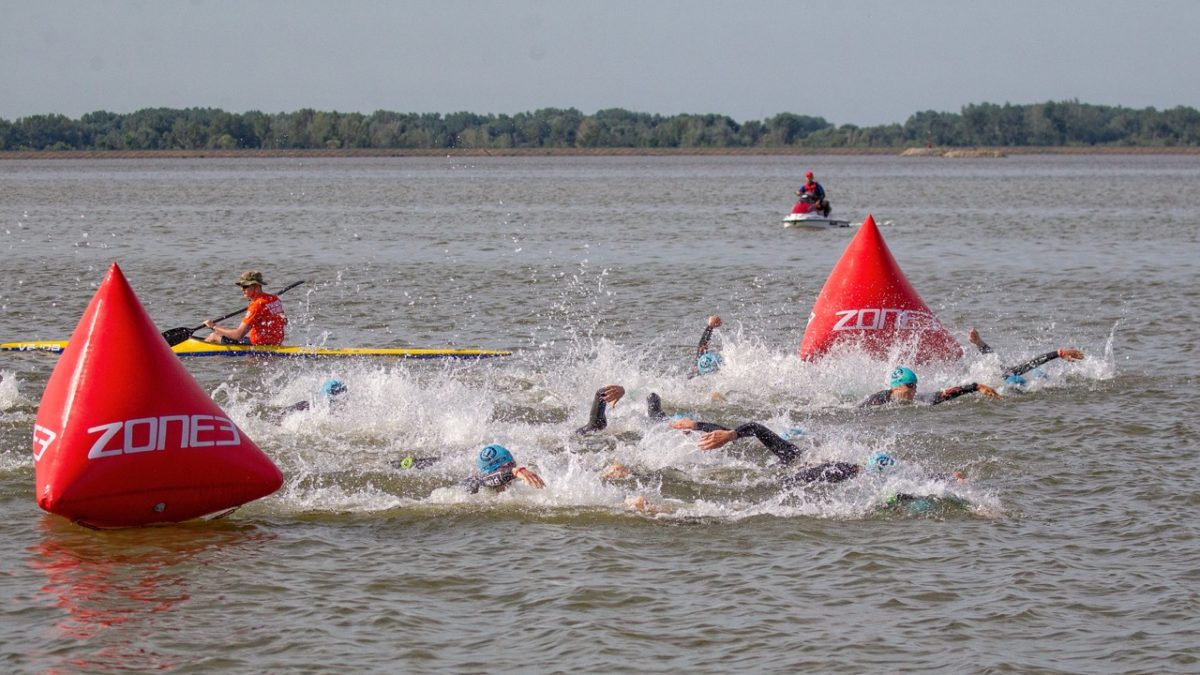British Triathlon creates new “open” category for male and transgender athletes
New policy creates new Open category for male, transgender and non-binary athletes who were male at birth
 Photo by:
Jose Luis Hourcade
Photo by:
Jose Luis Hourcade
British Triathlon has followed FINA’s (the international swimming federation) lead and will bar transgender and non-binary athletes who were male at birth from women’s competitions. The federation says that athletes will have to compete in one of two categories – Female or Open.
“Our policy outlines that Triathlon is a sport for everyone and that transphobic behaviour will not be tolerated,” British Triathlon said in a statement today. “It confirms that Triathlon is a gender-affected sport and so for competitive events (those races that have prizes, times, and/or rankings) for athletes over the age of 12, there will be two categories; a Female Category, (for those who are the female sex at birth), and an Open Category, (for all individuals including male, transgender and those non-binary who were male sex at birth.”
In terms of triathlon governing bodies, British Triathlon appears to be leading the way on this front – World Triathlon is set to announce its transgender policy next month.
“The Board will discuss this matter and approve our transgender policy at a meeting to be held August 3rd,” Olalla Cernuda, the Head of Communications for World Triathlon, said.
The new policy will come into effect on Jan. 1, 2023. “We are choosing to share it now to ensure clarity of direction to all of our athletes and participants and so that we can provide information to event organisers about how they operate Open and Female category events, as well as event organisers and other deliverers who may consider delivering non-competitive open participation activities and events,” British Triathlon wrote as part of an FAQ about the new policy. “Additional guidance will be shared with key stakeholders including clubs and coaches in the autumn to ensure that policies are implemented fairly and inclusively.”
British Triathlon created a working group to look into the issue, which surveyed members of the association, met with focus groups and did one-on-one interviews with athletes, coaches, committee members and race organizers.
Last month FINA enacted rules that barred transgender women from competing unless they had started treatments to suppress production of testosterone before they turned 12. “Scientists believe the onset of male puberty gives transgender women a lasting, irreversible physical advantage over athletes who were female at birth,” the New York Times reported in a story about the decision. The decision came in the aftermath of the controversy over swimmer Lia Thomas, a transgender athlete who won the 500 yard freestyle event at the NCAA Championships this year.
“Where this is competitive activity, fairness is paramount,” Andy Salmon, British Triathlon CEO told the BBC. “Our sport is gender-affected. We believe this is the right policy for triathlon in Great Britain, and the right time to publish it. We have taken legal advice and are confident it’s legally robust.”
Salmon told the BBC that the goal of the new rule is to avoid the issues FINA has had to deal with.
“We didn’t want to be a governing body that waited for that to be a problem before we tried to fix it,” Salmon continued. “We don’t know what’s going to happen tomorrow or the next day, and we wanted to be ready for that day.”
We reached out to Triathlon Canada for information on its policies and learned that, like World Triathlon, the organization is updating its policy over the next month.
“Triathlon Canada is organizing a summit with our PSO members in Edmonton at the PTO races at the end of July to discuss opportunities for inclusion in our sport,” Triathlon Canada said in a statement. “This will include discussions around the creation of a transgender policy. We are also participating in the work being done by World Triathlon on the development of a policy at the international level and we anticipate they will have a policy out shortly.”
